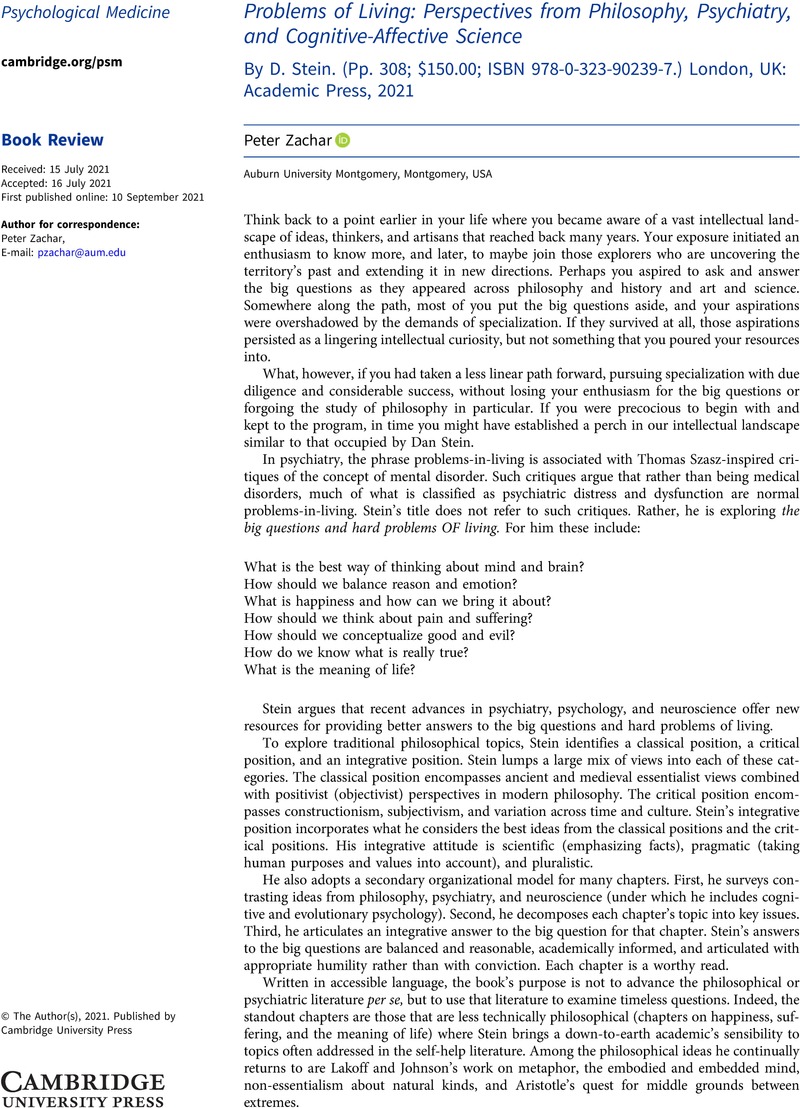No CrossRef data available.
Article contents
Problems of Living: Perspectives from Philosophy, Psychiatry, and Cognitive-Affective Science By D. Stein. (Pp. 308; $150.00; ISBN 978-0-323-90239-7.) London, UK: Academic Press, 2021
Review products
Problems of Living: Perspectives from Philosophy, Psychiatry, and Cognitive-Affective Science By D. Stein. (Pp. 308; $150.00; ISBN 978-0-323-90239-7.) London, UK: Academic Press, 2021
Published online by Cambridge University Press: 10 September 2021
Abstract
An abstract is not available for this content so a preview has been provided. Please use the Get access link above for information on how to access this content.

- Type
- Book Review
- Information
- Copyright
- Copyright © The Author(s), 2021. Published by Cambridge University Press


